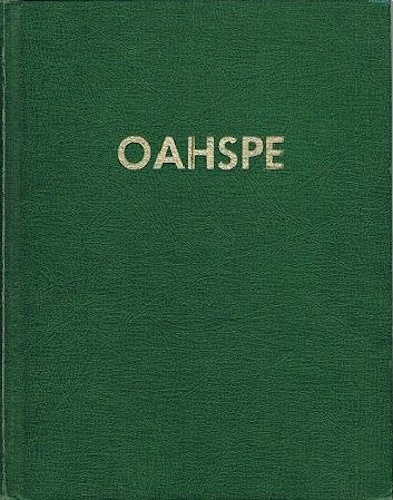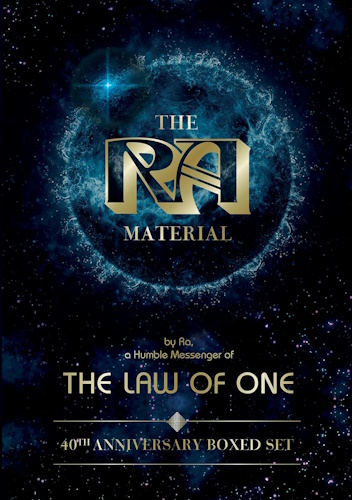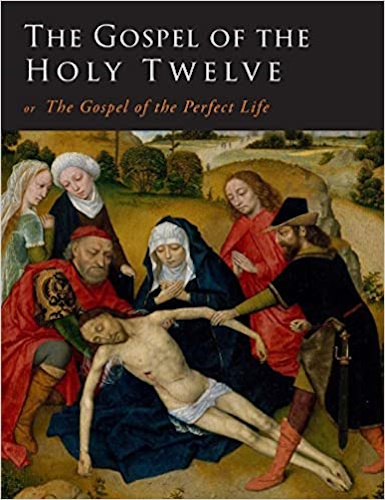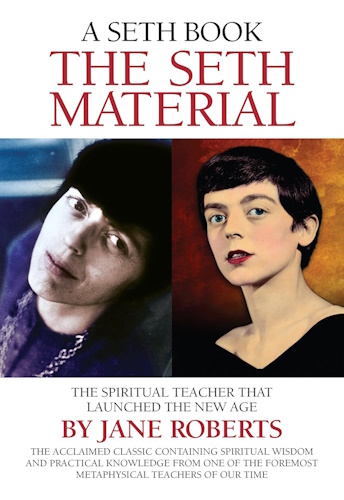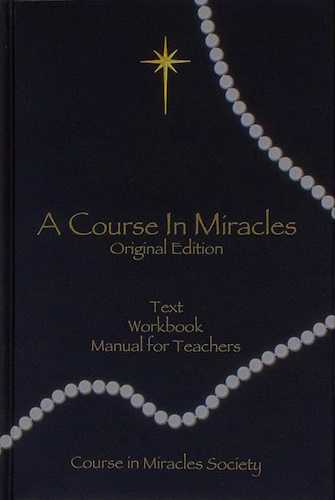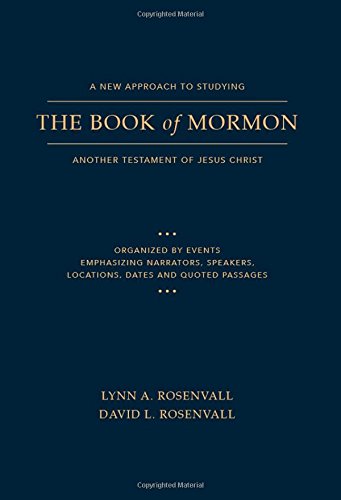
![]()
![]()
Book of God's Word
Chapter XXIV
1. Zarathustra inquired concerning the government. To which I'hua'Mazda replied, saying:
2. To the All Pure disciples there is no need of government, save to do the Will of Ormazd. But no people are all pure; no people are all wise. Two kinds of government created the Creator; the first is His Own, the Government of Ormazd; the second is the government mortals have amongst themselves.
3. Zarathustra inquired if government did not abridge liberty. I'hua'Mazda said: The Ormazdian government giveth liberty; so far as man's government partaketh after the Ormazdian government, it giveth liberty also.
p. 230b
4. Zarathustra inquired: What is the best, most potent, man's government? To which I'hua'Mazda replied: This is the best, most potent, man's government: First, there shall not be more than two thousand people, so that they can know one another; and no city shall be larger than that.
5. The oldest, wisest, best man shall be the chief rab'bah; but the families of tens and families of hundreds within the city shall have each, one rab'bah, being the oldest, wisest, best man.
6. These rab'bahs shall be the government of the city. They shall have a government house, and it shall be the place of decrees.
7. Zarathustra said: How shall they make decrees, that the decrees pervert not liberty? I'hua'Mazda said: Ask not this, O man! He who crieth out constantly for his liberty is a selfish man, he is a druk. Save a man be willing to sacrifice his liberty somewhat, for the public good, he is unworthy before Ormazd. To find the amount of sacrifice, this is the business of the decrees.
8. Zarathustra said: How, then, shall the rab'bah proceed? I'hua'Mazda said: When they are seated, the chief rab'bah shall announce the subject; neither shall any other rab'bah announce the subject. But if a rab'bah have a subject, he shall state it beforehand to the chief rab'bah.
9. After the subject is announced, then shall all the rab'bahs speak on the subject; but they shall not speak against one another; each one declaring his highest light.
10. When they have all spoken, then shall the chief rab'bah speak his highest light, which he gathereth from the others in the first place, but which is afterward illuminated by the Light of Ormazd, and this shall be the decree.
11. Zarathustra inquired concerning the laws betwixt cities. I'hua'Mazda spake to Zarathustra, the All Pure, explaining the Ormazdian law. He said: A city is a family of one. A small village is a family of one; for which reason is a city called Ir. And every city shall have one God-ir, who shall be the oldest, best, wise man. The God-irs shall meet in council to consider what is good for all the cities jointly. For some cities are situated
p. 231b
for flax and wool, some for iron, and some for copper, and some for ships.
12. Zarathustra inquired concerning the Council of God-irs. I'hua'Mazda answered him, saying: The God-irs shall choose the oldest, best, wise man amongst them, and he shall be called God-ir Chief. And he shall sit in the east in the Council chamber, and he shall present the subjects, after they have been told him by the other God-irs. And when he hath presented a subject, all the members shall speak upon it. And after they have all spoken, then the God-ir Chief shall speak, and his words shall be the decree, which shall be called the Zarathustrian law, because the All Light dwelleth with the Chief, and he cannot err. This is the Ormazdian law, the I'hua'Mazdian law, the Zarathustrian law.
13. Zarathustra said: Of a walled city (giryah), what is the Ormazdian law? I'hua'Mazda answered, saying: To the I'hins, walled cities; to the I'huans, cities without walls. To the cities of the druks, walls. This is the kingdom of I'hua'Mazda; they that have faith, why shall they build walls? They shall not hoard up gold and silver; none will rob them. After Zarathustra, two people will live. One shall be the people of this world; the other shall be the people of Ormazd. The former shall strive for earthly things; the latter for spiritual things. And there shall be no affinity betwixt these two people. From this time forth, the Zarathustrian people, who have faith in the Father, shall not have walled cities (save the I'hins, the sacred people). But this world's people, having no faith in the Father, shall have faith in stone walls; whereby ye may know which are righteous in my sight.
14. Zarathustra inquired concerning the smallest of cities. I'hua'Mazda answered him, saying: The smallest city is a man and his wife and children. And even as the people in a large city are one with one another, so shall a man and his wife and children be one with one another.
15. And as a large city must have a head father, so shall a small one. Whatsoever hath no head is nothing.
16. Zarathustra said: In the government of a large city, the fathers speak on a subject, and after them, the head father decreeth.
p. 232b
17. I'hua'Mazda said: Even so shall it be in a family of husband and wife. The wife shall speak first, and the children next, if old enough; and after that the father shall decree. That which is a good law for a large city, is good for a small one. As the kingdoms in heaven are governed, so shall be the kingdoms on earth.
18. Zarathustra inquired concerning a bad husband and a good wife, and a bad wife and a good husband? I'hua'Mazda spake to Zarathustra, the All Pure, saying:
19. Who knoweth what is good and what is bad? Are not all men to give themselves as sacrifice to the Father, and all women also? If a good woman is not willing to sacrifice herself to a bad husband, after having sworn to Ormazd, then she is not good, but a lover of herself. A good woman hath no self to serve. Because her husband turneth out bad, shall she also? Is it not good for her in the place Ormazd provided? Shall she set up her judgment against the Father's?
20. There be men of evil, and of passion, who abuse their wives. Knoweth not every damsel this? For this reason, if she commit herself to her husband in the name of the Father, He heareth her. And He establisheth His kingdom in her house. And that man and woman have no longer themselves to consult as to their desires; for if the Father desireth her to leave her husband, or the husband to leave the wife, He taketh one of them to heaven. Think not that He changeth as the wind, or boweth Himself to please the caprice of man or woman. Rather let the good wife, with a bad husband, say to Ormazd:
21. Because I was vain, Thou hast rebuked me, O Father. Because I sought to change my condition, Thou hast shown me I knew not what was good for me. Yea, thou hast shown me the folly of my judgment before Thee, and I will profit in turning to Thy Will. I will not more open my mouth in complaint. Though I be scourged with stripes, and made ashamed of my household, yet will I glorify Thee. The city Thou hast founded in me, will I begin at the foundation, and build up as a holy city, in Thy name.
22. And she shall say to her husband, who beateth her: Because the Father
p. 233b
gavest thou to me, I will rejoice and sing in thy praise. Before I sleep at night, I will ask His blessing upon thee, and in the early morning, and at high noon. Though thou mayst hate me, yet will I do so great good works for thee, thou shalt love me. Though thou mayst kill me, yet will I go into heaven and build a house for thee.
-
Urantia Book, 44:0.11 - The Celestial Artisans
Never in your long ascendancy will you lose the power to recognize your associates of former existences. Always, as you ascend inward in the scale of life, will you retain the ability to recognize and fraternize with the fellow beings of your previous and lower levels of experience. Each new translation or resurrection will add one more group of spirit beings to your vision range without in the least depriving you of the ability to recognize your friends and fellows of former estates.
-
Princess Bride 1987 Wallace Shawn (Vizzini) and Mandy Patinkin (Inigo Montoya)
Vizzini: HE DIDN'T FALL? INCONCEIVABLE.
Inigo Montoya: You keep using that word. I do not think it means what you think it means. -
Urantia Book, 117:4.14 - The Finite God
And here is mystery: The more closely man approaches God through love, the greater the reality -- actuality -- of that man. The more man withdraws from God, the more nearly he approaches nonreality -- cessation of existence. When man consecrates his will to the doing of the Father's will, when man gives God all that he has, then does God make that man more than he is.
-
Urantia Book, 167:7.4 - The Talk About Angels
"And do you not remember that I said to you once before that, if you had your spiritual eyes anointed, you would then see the heavens opened and behold the angels of God ascending and descending? It is by the ministry of the angels that one world may be kept in touch with other worlds, for have I not repeatedly told you that I have other sheep not of this fold?"
-
Urantia Book, Foreword - 0:12.12 - The Trinities
But we know that there dwells within the human mind a fragment of God, and that there sojourns with the human soul the Spirit of Truth; and we further know that these spirit forces conspire to enable material man to grasp the reality of spiritual values and to comprehend the philosophy of universe meanings. But even more certainly we know that these spirits of the Divine Presence are able to assist man in the spiritual appropriation of all truth contributory to the enhancement of the ever-progressing reality of personal religious experience—God-consciousness.
-
Urantia Book, 1:4.3 - The Mystery Of God
When you are through down here, when your course has been run in temporary form on earth, when your trial trip in the flesh is finished, when the dust that composes the mortal tabernacle "returns to the earth whence it came"; then, it is revealed, the indwelling "Spirit shall return to God who gave it." There sojourns within each moral being of this planet a fragment of God, a part and parcel of divinity. It is not yet yours by right of possession, but it is designedly intended to be one with you if you survive the mortal existence.
-
Urantia Book, 1:4.1 - The Mystery Of God
And the greatest of all the unfathomable mysteries of God is the phenomenon of the divine indwelling of mortal minds. The manner in which the Universal Father sojourns with the creatures of time is the most profound of all universe mysteries; the divine presence in the mind of man is the mystery of mysteries.
-
Urantia Book, 1:4.6 - The Mystery Of God
To every spirit being and to every mortal creature in every sphere and on every world of the universe of universes, the Universal Father reveals all of his gracious and divine self that can be discerned or comprehended by such spirit beings and by such mortal creatures. God is no respecter of persons, either spiritual or material. The divine presence which any child of the universe enjoys at any given moment is limited only by the capacity of such a creature to receive and to discern the spirit actualities of the supermaterial world.
-
Urantia Book, 11:0.1 - The Eternal Isle Of Paradise
Paradise is the eternal center of the universe of universes and the abiding place of the Universal Father, the Eternal Son, the Infinite Spirit, and their divine co-ordinates and associates. This central Isle is the most gigantic organized body of cosmic reality in all the master universe. Paradise is a material sphere as well as a spiritual abode. All of the intelligent creation of the Universal Father is domiciled on material abodes; hence must the absolute controlling center also be material, literal. And again it should be reiterated that spirit things and spiritual beings are real.
-
Urantia Book, 50:6.4 - Planetary Culture
Culture presupposes quality of mind; culture cannot be enhanced unless mind is elevated. Superior intellect will seek a noble culture and find some way to attain such a goal. Inferior minds will spurn the highest culture even when presented to them ready-made.
-
Urantia Book, 54:1.6 - True And False Liberty
True liberty is the associate of genuine self-respect; false liberty is the consort of self-admiration. True liberty is the fruit of self-control; false liberty, the assumption of self-assertion. Self-control leads to altruistic service; self-admiration tends towards the exploitation of others for the selfish aggrandizement of such a mistaken individual as is willing to sacrifice righteous attainment for the sake of possessing unjust power over his fellow beings.
-
Urantia Book, 54:1.9 - True And False Liberty
How dare the self-willed creature encroach upon the rights of his fellows in the name of personal liberty when the Supreme Rulers of the universe stand back in merciful respect for these prerogatives of will and potentials of personality! No being, in the exercise of his supposed personal liberty, has a right to deprive any other being of those privileges of existence conferred by the Creators and duly respected by all their loyal associates, subordinates, and subjects.
-
Urantia Book, 54:1.8 - True And False Liberty
There is no error greater than that species of self-deception which leads intelligent beings to crave the exercise of power over other beings for the purpose of depriving these persons of their natural liberties. The golden rule of human fairness cries out against all such fraud, unfairness, selfishness, and unrighteousness.
